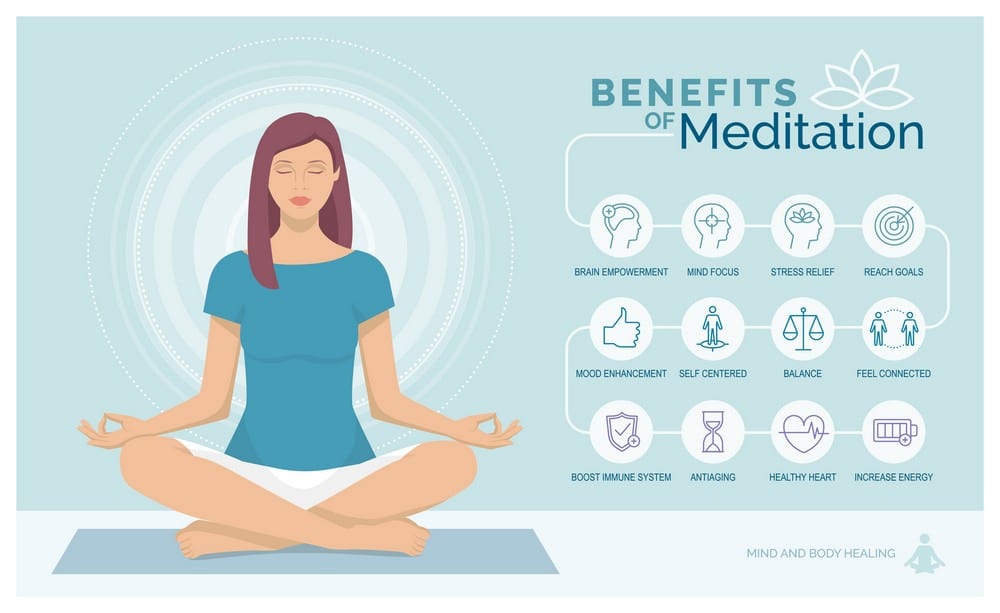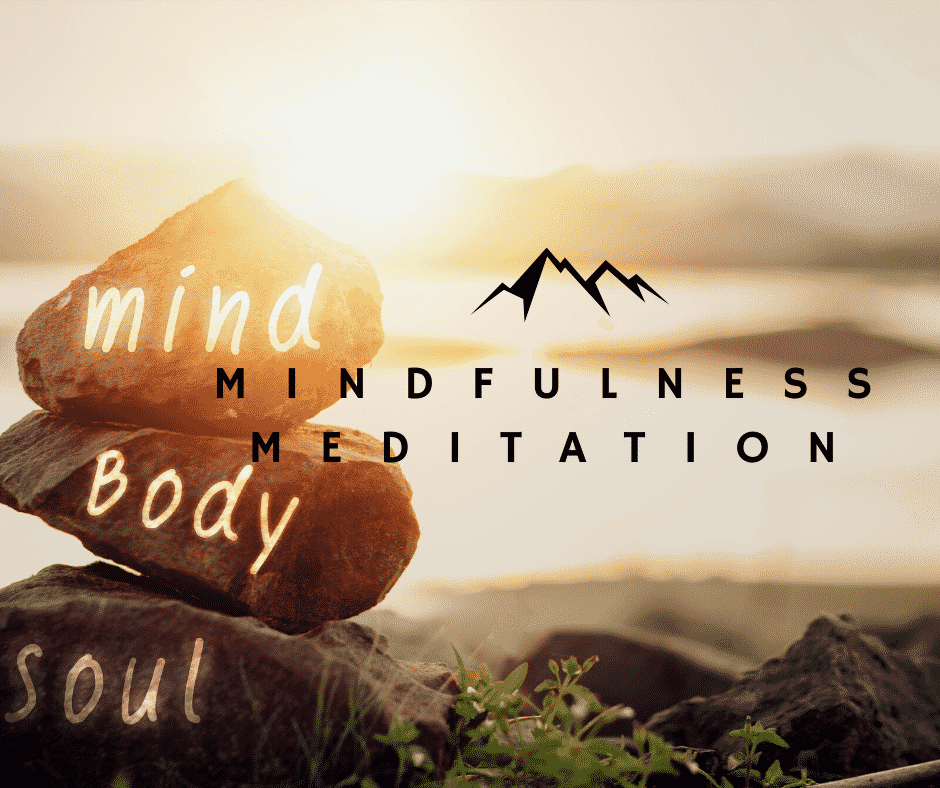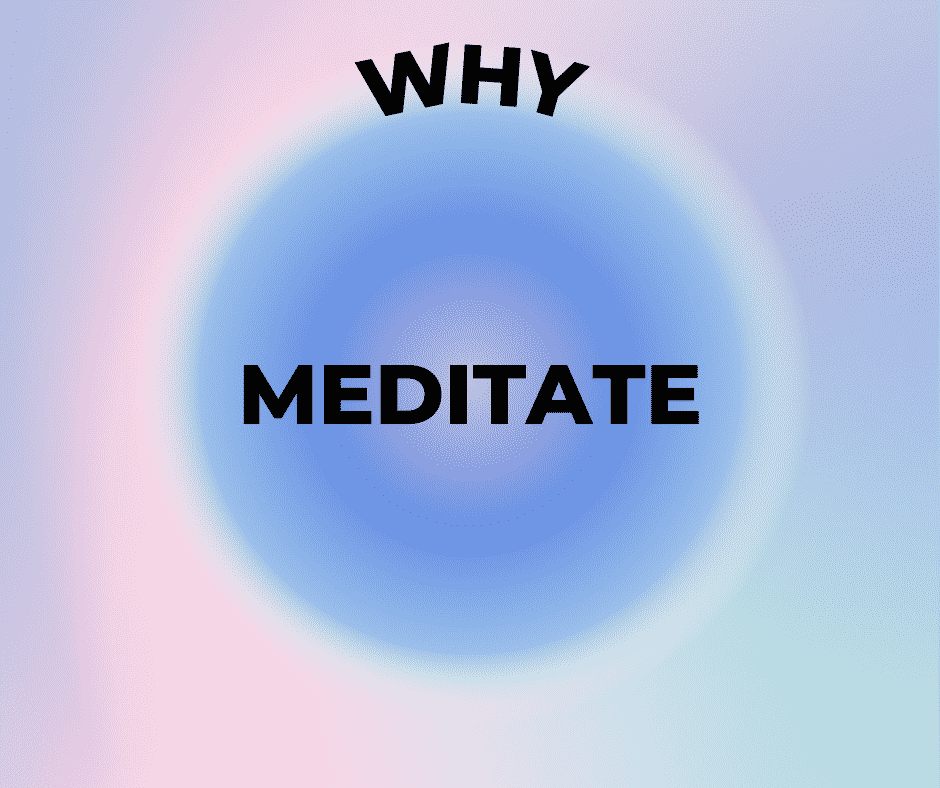Why Meditate?
You may be wondering why you should add meditation to your already busy life. After all, there are a million things to do and only so many hours. But what if I told you that adding just a few minutes of mediation to your day can change your life for the better? Meditation has countless mental health benefits, but it can also improve physical health, help you focus and increase productivity, and even make you happier! So, are you ready to give it a try and learn why meditate? If so, keep reading for tips on how to get started.
The Healing Benefits of Meditation
Meditation is an age-old practice that has provided a myriad of health benefits. From reducing stress and anxiety to promoting calm and inner peace, meditation can help to improve your overall well-being. But, perhaps one of the most significant benefits of meditation is that it can help you become more present.
With the hectic pace of modern life, it’s all too easy to get caught up in our thoughts and worry about things that have already happened or may never happen. When we meditate, we learn to focus on the present moment and let go of these thoughts, freeing us from needless worry and stress. Just a few moments of meditation each day can make a big difference in your overall health and wellbeing.
Here are a couple of benefits you need to know about why meditate:
- First, meditation helps to relieve stress.
- Secondly, it is proven that it also helps to improve sleep and boost the immune system.
- Third, the meditation practice will help you with emotional regulation and self-awareness and help you fall asleep faster.
- Finally, meditating in a deep state can help your body overcome a medical condition or chronic pain.
Below we will discuss all these benefits in detail.

Regular Meditation Practice With a Meditation App
According to the National Institutes of Health scientific studies, over 75% of Americans experience some form of stress daily. This stress can lead to many physical and mental health problems, including high blood pressure, anxiety, and depression. Meditation is a simple and effective stress reduction method and improve overall wellbeing.
Mindtastik is a meditation app that makes it easy to get started with a daily life meditation practice. With merely a few minutes of sitting quietly, you can learn to manage stress and find calm in the modern world. Mindtastik offers a variety of guided meditations to find the perfect practice for your needs. So give it a try today and integrate meditation into your daily routine to improve your life.
Download Android: Meditation App
Download iOS: Meditation App
Meditation Reduces Stress and Exhaustion
If you’re looking for a way to reduce stress and exhaustion, meditation may be the answer. Scientific evidence shows that meditation can help to lower blood pressure, improve heart health, and reduce stress hormones. Additionally, meditation helps to increase activity in the prefrontal cortex, which is responsible for executive function and self-control. As a result, meditation can help you to manage stress better and avoid burnout. Taking just 10 minutes each day to sit quietly and focus on your breath can make a big difference in your overall health and well-being.
Read more about apps for anxiety and best hypnosis app.
Meditation Improves Your Memory, Concentration, Focus, and Ability to Learn
Meditation has been shown to improve memory, concentration, focus, and learning ability. For example, a study published in the journal Frontiers in Human Neuroscience found that students who meditated for eight weeks had better working memory, longer attention spans, and improved task flexibility compared to those who didn’t meditate.
The study’s lead author, Michael Posner, said that meditation “produces changes in the brain that enhance the ability to keep information in mind and to pay attention.” Another study, this one published in the journal Psychological Science, found that people who meditated were better able to remember a list of words than those who didn’t meditate. This suggests that meditation can help improve your “working memory,” or the ability to recall information quickly. So if you’re looking for a way to boost your memory, concentration, focus, and ability to learn, meditation may be the answer.
Meditation May Help You Build More Peaceful, Loving, and Meaningful Relationships
There are various forms of meditation, but the goal of all of them is to help you focus and connect with your inner thoughts and feelings. At the moment, this can help you feel calmer and more at peace. But, over time, regular meditation can help you develop a greater sense of compassion and empathy for others.
It can also help you relax and feel more connected to the people and things that are important to you. Ultimately, meditation may help you build more peaceful, loving, and meaningful relationships. If you’re interested in trying meditation, many resources are available to get started. So why not give it a try? You might be surprised at the difference it can make in your life.
Meditation Boosts Your Creativity and Problem-Solving Ability
If you’re looking for a way to boost your problem-solving skills and creativity, you might want to try meditation. Meditation has been shown to improve problem-solving ability and creativity, and it has a host of other advantages as well. Unfortunately, other problem-solving skills and creativity treatments can be expensive and time-consuming, but meditation is relatively inexpensive and easy to do.
You can start your meditation practice anywhere, at any time, and you don’t need any special equipment. Meditation can also help you become more aware of your thoughts and feelings, which can help you solve problems more effectively. When you’re calm and relaxed, you’re better able to think clearly and creatively. Meditating regularly can help you reduce stress and tension, and it can also help you feel more optimistic about life.
Meditation Is Beneficial in the Treatment of Depression, Anxiety, and Insomnia
There’s no question that mental illness is a real and serious problem. In the United States alone, one in five adults suffers from some form of cognitive illness, and bipolar disorder, depression, and anxiety are among the most common. But while mental illness is often thought of as an incurable disease, there is hope. Meditation is an effective treatment for all three of these conditions.
Depression is characterized by a negativity bias, meaning that sufferers tend to focus on negative thoughts and experiences. This can be a self-reinforcing cycle, but research suggests that meditation can help break it. For example, one study found that participants who underwent eight weeks of mindfulness-based meditation had significantly lower levels of depression than those who didn’t.
Anxiety is another common cognitive disease, and like despair, it can be self-reinforcing. If you’re anxious about something, you’re more likely to dwell on it and make it into a bigger deal than it actually is. But again, research has shown that meditation can be helpful.
Insomnia is a sleep disorder that can significantly impact your cognitive health. If you’re not getting enough rest, you’re more likely to feel anxious and depressed. Meditation has been shown to be an effective treatment for insomnia, and it can also help reduce stress and anxiety.
Mindfulness Meditation

Mindfulness meditation is a simple and effective way to reduce anxiety. In fact, it’s one of the most popular forms of meditation. All you need to do is sit quietly and focus on your breath. Observe your thoughts and feelings without judgment as you breathe in and out. This practice can help to calm your mind and bring peace to your life.
Mindfulness based stress reduction meditation has many benefits, including reducing stress, improving sleep, and increasing compassion. In addition, studies have shown that meditation can actually change the structure of your brain, reducing stress and improving your overall well-being. So if you’re looking for a way to reduce stress and improve your life, mindfulness meditation is a great option.
Check out our online meditation timer.
Mental and Physical Health Improvement
Most people know that exercise is good for their overall health, but not everyone realizes the effects that exercise can have on mental health. For example, research has shown that regular exercise can help reduce cortisol levels, which can help improve mood and reduce stress levels. Exercise has also been linked with a reduced risk of heart disease and any other medical conditions.
In addition, self-care activities such as exercise can help to promote a sense of control and empowerment, which are both essential for good mental health. So, whether you’re looking to improve your physical fitness or mental well-being, regular exercise is a great place to start. And, with so many different types of exercise available, there’s sure to be an activity that’s perfect for you.
Reduce High Blood Pressure by Practicing Meditation
When you meditate, you’re training your brain to concentrate. And when your brain is better focused, it’s better able to control stress and anxiety. For example, high blood pressure is often caused by chronic stress, so you can help reduce your blood pressure by meditating regularly. Meditation doesn’t have to be complicated. You can meditate anywhere, anytime. Just find a quiet place to sit or lie down comfortably, close your eyes, and concentrate on your breath.
Breathe in slowly and deeply, then exhale slowly. As you breathe, pay attention to the sensations in your body and the sounds around you. For example, notice the rise and fall of your chest and the feeling of air moving through your nose and mouth. If your mind wanders, that’s OK. Instead, gently bring your attention back to your breath. Keep meditating for 5-10 minutes, or longer if you like. You’ll start to feel more calm and centered. And over time, you may see a reduction in your blood pressure.
Summary of Meditation Benefits:
- IMPROVED MEMORY: Improve attention and memory in just 1 week.
- BETTER SLEEP: Reduce the time it takes to fall asleep and improve sleep quality.
- CREATIVITY: A 1,500+ person analysis shows a link between mindfulness and creativity.
- RELATIONSHIPS: Practicing mindfulness has been linked to greater satisfaction in relationships.
- MORE SELF-CONTROL: 11 hours of meditation led to structural changes around the anterior cingulate cortex, which is involved in focus and self-control.
- EMOTIONAL REGULATION: Completion of mindfulness programs changed grey matter concentration of the brain regions for emotion regulation.
Conclusion: Why Meditate?
So, why meditate? The healing benefits of body scan meditation are vast and varied. From reducing stress and exhaustion to improving memory, concentration, focus, and learning ability, meditation has something to offer everyone. And if that’s not enough, it also boosts creativity and problem-solving ability. If you’re looking for an easy way to start reaping the rewards of meditation, we suggest giving a mindfulness meditation app a try. Let us know your thoughts in the comments below!



